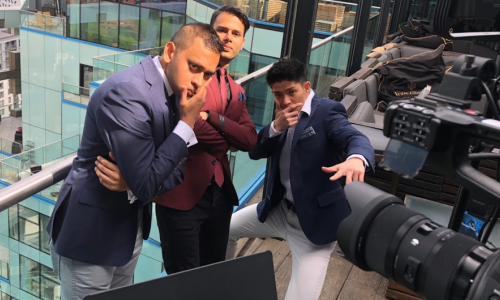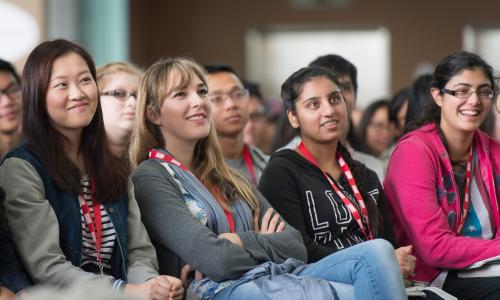
History Graduate student Kendra Gill hit the nail on its head at the History Career Panel as she paid omage to what main stream media’s image of a historian is. “I think there is this lovely myth that you have to be a 65 year old gentleman in muted clothing to be a historian.
At the event, you would be surprised to see not a single elderly person in the room, and yet, all are graduates from SFU’s History Department and in some form or the other, are historians. Hosted by both Career Services and the Department of History, the event highlighted the multitude of career possibilities and how to get to these careers for students pursuing a degree in History.
Potential Careers
Museum curator, novelists, journalist, foreign / diplomatic service, Litigation Management, Canadian Heritage, Parks Canada, Department of Indian and Northern Affairs, etc.
Getting Started
Five additional career paths were also identified by the panelists such as the academic route that Lesley Cormack, Faculty of Social Sciences Dean took. Lesley started by realizing her passion for history, “I found myself sitting in a university library on a sunny day watching people outside enjoy the afternoon. I realized that there was no where else I’d rather be than sitting there with a book, touching the very same pages that Queen Elizabeth had once touched.”
Following your passion was a theme among the panelists as each person began their career by following their passion; whether it was women’s history or Indian Residential School history. While each panelist recommended identifying what drives you, all offered concrete tips to how to turn a degree in history into a career.
Here is some advice fro the panelists:
Jolene Cunning, Historical Interpreter
Simply ask.
Asking about programs and what she could do to help lead Jolene into her career after discovering the Vancouver museum held free technique training for interpreters. Once she completed the training, Jolene noticed a gap in women’s history and asked the museum if she could do her own walking tour. The museum said yes and her career began, “the key is to ask if you can try and do things, you will be amazed at how receptive people are to your ideas.”
Kendra Gill, SFU History Graduate student
Turn Academic Experience into Work Experience
As the recession looms on, the job market has become flooded with people who have more work experience but less academic knowledge that most graduates. Kendra encouraged students to articulate how their education experience is equivalent to job experience.
Identify the jobs and your qualifications
|
Job Qualifications |
Your Qualifications |
|
Communication |
Gained through conducting presentations |
|
Teamwork |
Gained through group research projects |
|
Work independently |
Achieved by preparing for assignments, lectures, tutorials |
|
Work within deadlines |
This is what university is all about, we juggle multiple courses, work, personal life and work in high stress environments with tight deadlines |
|
Project management |
Planning research projects, completing a BA or MA proves project management |
|
Computer skills |
Look at what you use to complete a research project; Microsoft office suite, Internet applications, research databases |
Nicole Read, Founder of the History Group
Resume Attention
Having to look through 100 resumes on average for one position, Nicole warned students they have only one minute to make an impression. So where do employers look during that one minute? Nicole says in the professional qualifications and education sections. But, overall, Nicole believes your resume format and appearance is essential to giving an employer the understanding that you are a detailed oriented, meticulous person.
Trevor Smith, Rocky Mountain Tourism Complaints Manager
Ask two questions
Trevor’s main advice to students is to focus on the ‘so what?’ and ‘who cares?’ questions. In the business arena these two questions guide people in their decision making process and can even be applied to resume creation. When listing jobs and experiences, look back to see if you’ve answered these two main questions. Make sure your resume information tells something about you and is also relevant.
Microsoft Office
Buy it! While other panelists suggested becoming efficient in Microsoft Office or Microsoft Suite, Trevor says it is vital. “Ten minutes a day go into the program and just play around with it and learn it. Better yet, go to Ultimate Steal and buy it as it is essential to office productivity.”
Network
We hear it daily – make sure to network, but this key, says Trevor. Keep in touch with professors, colleagues and tap into the resources here at the university; Career Services and Co-op are two resources we don’t use as often as we should.
So whether you’re headed for a career in the field of museums, academia, interpreters or business, make sure you add these tips to your resource belt to help you get to your career with a history degree.















